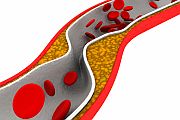More likely to be hospitalized for atherosclerosis, acute myocardial infarction, coronary heart disease
TUESDAY, Sept. 29, 2015 (HealthDay News) — Smoking significantly increases medical costs among patients with peripheral artery disease (PAD), a new study suggests. The findings were published in the Oct. 6 issue of the Journal of the American College of Cardiology.
Researchers analyzed 2011 health insurance claims data from 22,203 PAD patients in Minnesota, and found that annual per-patient health care costs were $18,000 higher among smokers than among nonsmokers.
The hospitalization rate was 49 percent among smokers, 35 percent higher than among nonsmokers. Smokers were more likely to be hospitalized for peripheral or visceral atherosclerosis, acute myocardial infarction, and coronary heart disease than nonsmokers, the University of Minnesota Medical School researchers found. Sue Duval, Ph.D., an associate professor of cardiology and biostatistics, led the project.
The findings highlight the need to get PAD patients to stop smoking, which can benefit their health and significantly reduce their medical costs, according to Elizabeth Jackson, M.D., M.P.H., an assistant professor of medicine at the University of Michigan Health System and coauthor of an accompanying editorial.
Full Text (subscription or payment may be required)
Editorial (subscription or payment may be required)
Copyright © 2015 HealthDay. All rights reserved.








